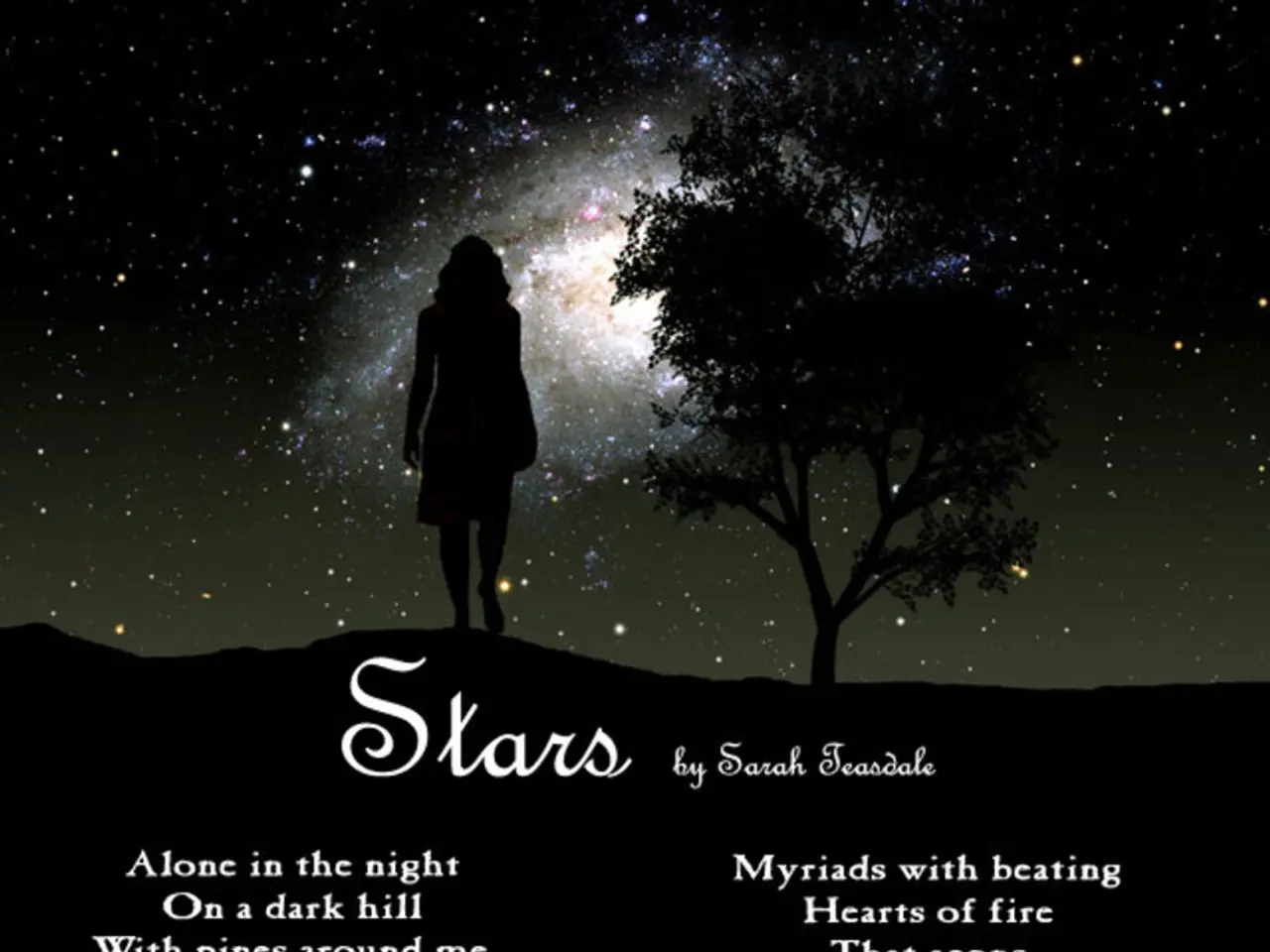Testimonies captured through poetic expressions of everyday life
In the realm of contemporary poetry, Camille T. Dungy's work stands out as a powerful testament to ecological crises, environmental justice, and black cultural history. Her poetic style, deeply rooted in eco-poetry and documentary impulses, seamlessly weaves personal narrative with ecological and cultural history.
Dungy's poetry is often referred to as "poetry of ecological witness," aligning her with poets who respond to environmental crises and interweave them with cultural identity and lived experience. This approach shares significant affinities with Muriel Rukeyser, a central figure in documentary poetry, whose work is known for its integration of political activism, documentary evidence, and lyrical form.
Dungy's work extends Rukeyser’s legacy in documentary poetry, employing poetry as a form of moral and political witness, especially regarding ecological and racial histories. She merges lyrical intensity with a documentary attention to evidence, utilising archival materials, ecological data, and personal history, to produce a layered, nuanced poetic record that serves both as witness and art.
One of Dungy's poems, "let grow more winter fat / wine-cup / western wild rose," mentions little waves of bluestem, fuzzy tongue penstemon, quieter golden currant, and nodding onion, evoking a longing for the restoration of the prairie. The poem serves as a poignant reminder of the little open prairie left, as indicated in the poem itself.
Similarly, "only a few clusters of Colorado butterfly plant still yawn into the night" is a new poem by Dungy, which poignantly highlights the dwindling prairie landscapes, with only a few clusters of Colorado butterfly plant still existing where once there was prairie.
Dungy's poetry also delves into intimate subjects such as motherhood, marriage, and her garden, as seen in her memoir "Soil: The Story of a Black Mother's Garden." Her work often reclaims blackness within natural landscapes, extending the documentary poem's capacity to testify not just about social injustice but also environmental degradation.
In "Ceremony," Dungy discusses various personal events, including the death of a black singer, a white singer, a neighbour, and family members. The poem describes the moon swelling and emptying into its shadow, and the grass greening up the yard, while also mentioning dancing to the song "Lovely Day" at a wedding. The brightness outside most days and a child cleaning the kitchen windows are also depicted in this poem.
As the "godmother" of documentary poetry, Muriel Rukeyser has influenced Dungy's work significantly. Dungy, like Rukeyser, bridges lyrical and documentary modes, using poetry to document and resist injustice, while also maintaining a strong focus on ecological themes.
In sum, Camille T. Dungy's poetic style can be seen as a continuation and renewal of Muriel Rukeyser’s documentary poetry approach, updated to foreground ecological crises, environmental justice, and black cultural history through a form that combines witness, lyricism, and activism.
- Camille T. Dungy's poetry, extending Muriel Rukeyser’s legacy, not only testifies about social injustice but also environmental degradation, delving into intimate subjects such as motherhood, relationships, and her home-and-garden, as seen in her memoir "Soil: The Story of a Black Mother's Garden."
- Dungy's poetry, deeply rooted in eco-poetry and documentary impulses, seamlessly weaves personal narrative with ecological and cultural history, making references to various flora like little waves of bluestem, fuzzy tongue penstemon, quieter golden currant, and nodding onion, symbolizing the longing for the restoration of the prairie.
- One of Dungy's poems, "only a few clusters of Colorado butterfly plant still yawn into the night," poignantly highlights the dwindling prairie landscapes, much like her other works that address ecological and racial histories, serving as a moral and political witness.
- In the realm of contemporary poetry, Dungy's work can be categorized as "poetry of ecological witness," aligning her with poets who respond to environmental crises and interweave them with cultural identity and lived experience, also incorporating elements of fashion-and-beauty, as can be seen in her garden, and travel, through her explorations of nature depicted in her poems.




